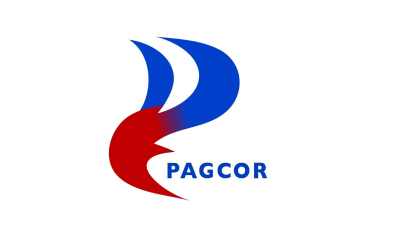Industry News
Managing the ‘Invisible’ client is key to iGaming’s future, states Imovo’s CO

At a time where traditional businesses are struggling to keep pace with an ‘invisible’ customer, and when digital communication is the new norm, the online gaming industry is faring better than most. But this is no time to rest on its laurels, claims Hadrian Sammut, Chief Officer Advisory and Projects at Malta-based data experts iMovo Limited.
The Malta-based company, which is an international leader in the fields of Customer Experience Management (CEM), Business Intelligence (BI) and Big Data Analytics, Artificial Intelligence and Workforce Management, has been building up its experience and client list across a number of sectors in recent years but Sammut believes iGaming is the frontrunner in terms of digital adoption and embracing digital natives. As the first partner in the EMEA region to achieve Zendesk Premier Implementation Partner status and with KYC driving online betting’s future prospects, he explains why managing the ‘invisible’ client is key to capitalising on the digital revolution.
“The European iGaming industry has always been at the forefront of the application of technology to meet the requirements of the ‘invisible’ client,” he advised. “With tighter compliance and AML requirements proposed across European iGaming we are already seeing various initiatives that address the increasing and stringent statutory requirements necessary for better customer protection. In a way, we view these tighter requirements as part and parcel of the overall customer experience within a rational regulatory framework. One thing is very clear; the emphasis should not be overtly on the tightening regulatory requirements as much as the higher need to know and understand the ‘invisible’ client and place this understanding within a context of improved customer experience.”
“The industry has always faced new challenges and the current compliance and AML requirements were clearly envisaged. However, we are discussing an industry that has unfailingly promoted technological advances and innovation, evidenced by the steady growth that is continues to experience year on year.”
As we hurtle towards 2020, for Sammut, we are living in a ‘Fourth Industrial Revolution’ as technology continues to evolve at a rate that is astounding. Focusing on how advancements in tech are subverting more traditional ways of doing business, and sometimes even rendering them redundant, he is concerned that most organisations are finding issues with dealing with an ‘invisible’ customer; one they never meet face-to-face but only recognise through online behaviour.
“We are experiencing rapid advances in the way we live, work and, more importantly within the context of this discussion, the way we relate to one another. With the advent of this digital revolution many analysts used to talk about the importance on implementing a reasonable technology balance that was often defined as ‘high-tech, high-touch.’
“But this very advancement has had an impact on the interaction between people, as more and more employees turn to email and social media to communicate with their clients. So, it is not surprising to discover that the traditional forms of communications are on a sharp decline. We can extrapolate the same concept to the business world and find that the very same phenomenon is taking place; the traditional ways of doing business has become more impersonal, at a distance and, very often, with an ‘invisible’ client. But has customer service always adapted to this new reality?”
“Undoubtedly, the ‘invisible’ client is becoming the norm,” he continued. “Over the last few years we have been in discussions with clients and asked them for the ratios of traditional vs. invisible. As recently as 2013 the balance was largely in favour of the traditional, but over the last few years the scale has been tipping largely on the other side. I would dare say that today the balance is largely in favour of the ‘invisible’ customer.”
The unseen presence of this new demographic brings with it the adoption of new tech and uses of data to meet the demands of online clients. Sammut believes there is a balance to be struck when measuring up face-to-face interactions in contrast to a wholly digital one. “With the tech-savvy, sophisticated customer of today, we cannot aim to just successfully attain good service, it is just as important to consider how that service was delivered, the ‘experience’ if you will,” he proposes. “Take the use of A.I., very often we highlight this experience in terms of its efficacy and value within an organisation, with little thought to the customers’ perspective. Various studies indicate that when A.I. is applied with little thought to the customer, this tends to have an adverse effect on the organisation, as customers start to feel more and more detached from the very organisation. This is one situation where it is important to maintain the ‘high-tech, high-touch’ model; it is good to apply high-tech solutions but not at the detriment of the contact with the client.”
New tech and the prevalence of big data are driving business onto unknown paths, following the recent Cambridge Analytica and Google Home Start scandals, the issue of customer protection is one reason online interaction is still met with scepticism from more traditional clients. “As more and more business organisations become data-driven, the issue of data governance will become more and more critical and acute. To achieve such a future-looking analysis companies will need to gather ever fragment of customer data as part of an overall data discovery process. They will also need to garner massive amounts of accurate and relevant data as part of the corporate objective.”
Fortunately for gaming as an industry, data shows it as one of the global pioneers in terms of communicating with and responding to this modern phenomenon of tech-savvy, unseen customers often referred to as digital natives and made up currently of predominantly millennials. “Gaming is traditionally a very cash rich sector which invests in futuristic solutions whereas other sectors can be more conservative. As a forward-thinking industry there is an advantage, especially as iGaming was born online so is already well equipped to working within a digital landscape. However, it’s important not to be complacent and lose sight of what keeps an industry competitive. The key to future proofing industries going forward will be the ability to know and predict what the invisible customer will do. The iGaming industry is largely targeting millennials, but it’s starting to recognise there is growth in educating and building relationships with older generations, or digital migrants, and that’s where CEM, BI and Big Data Analytics come into play.”
As a leader in these three fields and with its office based in the hub of European online gaming, iMovo understands the need for a strong self-service focus and client engagement strategy across as many channels of communication as technically possible. “At iMovo we have always prided ourselves as being the ‘Know Your Client’ company,” Sammut added. “In other words, we seek to make the modern-day ‘invisible’ client as ‘visible’ as technology today allows us. In fact, our services have consistently reflected this critical requirement. Our strategy has consistently been based at being at the forefront of exploiting technology across self-service, engagement and omni-channel support, and our recent appointment as the first partner in the EMEA region to achieve Zendesk Premier Implementation Partner status will help drive this.”
-

 Asia7 days ago
Asia7 days agoSkyesports Wraps Up Gaming Thiruvizha – Chennai Edition With 17,000+ Fans in Attendance
-

 eSports7 days ago
eSports7 days agoEsports Set To Take Over the Capital as BLAST Premier London Open Heads to Wembley Arena
-

 Asia6 days ago
Asia6 days agoPAGCOR: Online Gaming fuels nation-building, but illegal sites pose risks
-

 Africa6 days ago
Africa6 days agoGhana’s NLA Introduces New Sticker to Clamp Down on Illegal Lotto Operators
-

 Africa6 days ago
Africa6 days agoRise & Hustle partners with Altenar to power its new sportsbook offering
-

 Latest News7 days ago
Latest News7 days agoSporting CP’s Estádio José Alvalade to Host Legends Charity Game
-

 Central Europe6 days ago
Central Europe6 days agoCT Interactive Announces Strategic Partnership with Ecasino
-

 Eastern Europe6 days ago
Eastern Europe6 days agoDigitain Strengthens Romanian Market Presence Through KingCasino Partnership


















